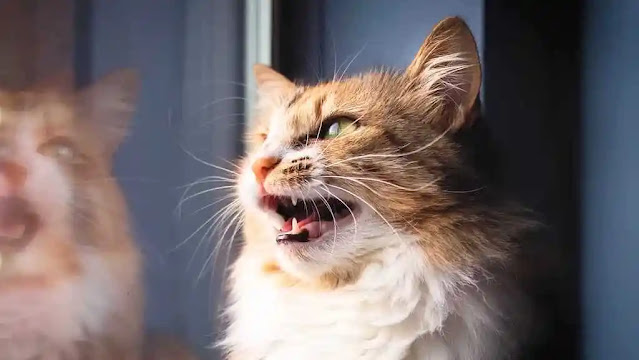cat cooing like a pigeon -Why is my cat cooing like a pigeon?
Understanding cat communication
What does it mean when a cat coos?
Cats are known for their wide range of vocalizations, from purring to meowing to hissing. But have you ever heard a cat cooing like a pigeon? This unusual sound can be surprising and confusing for cat owners. In this article, we will explore the meaning behind cat cooing and why some cats make this pigeon-like vocalization.
Unusual cat noises
Common cat vocalizations explained
Before we delve into the specifics of cat cooing, let’s briefly explore some of the more common vocalizations that cats make and what they mean.
– Meowing: Cats use meowing primarily to communicate with humans. They may meow to greet their owners, ask for food or attention, or express discomfort.
– Purring: Purring is usually a sign of contentment and relaxation in cats. However, cats may also purr when they are anxious or in pain as a self-soothing mechanism.
– Hissing: Hissing is a defensive vocalization that cats use to warn off potential threats. It is often accompanied by an arched back, puffed-up fur, and a defensive stance.
– Growling: Similar to hissing, growling is a vocalization that cats use to signal aggression. It is usually a warning sign that a cat is feeling threatened and may attack if provoked further.
Pigeon-like vocalizations in domestic cats
Now let’s get back to the topic at hand: cat cooing. While cooing is not a sound commonly associated with cats, some domestic cats have been known to make this unusual vocalization. Cat cooing sounds remarkably similar to the cooing of a pigeon, hence the name. The sound is often described as soft, melodic, and rhythmical, with a soothing quality to it. Unlike a cat’s typical meow, which tends to be sharper and more abrupt, cooing is much gentler and more melodious.
The role of cooing in cat social interactions
Like other vocalizations, cat cooing serves as a means of communication, both between cats and with their human companions. While the exact meaning of cooing may vary from cat to cat, it is often associated with feelings of contentment, relaxation, and affection. When a cat coos, it can indicate that they are feeling calm and secure in their environment. It may also be a sign of trust and comfort towards their human or feline companions. Some cats may even use cooing as a way to bond with their owners, seeking attention and affection in return.
Cat cooing and their evolutionary roots
To understand why cats make pigeon-like cooing sounds, it can be helpful to consider their evolutionary background. Domestic cats are descended from wildcats, which are solitary creatures that communicate primarily through body language and scent marking. In the process of domestication, cats have developed various vocalizations to communicate with their human companions. While meowing is their most common form of communication towards humans, cats may resort to cooing as a way to express relaxation and trust, mimicking the comforting sounds they may have heard from their past feline ancestors.
Differentiating between cat cooing and purring
Cooing and purring are two distinct vocalizations that cats can make, and it’s important to differentiate between them. While they may seem similar in sound, there are subtle differences that set them apart. Purring is a continuous, vibrating sound that cats produce through the rapid movement of their vocal cords.
It is generally associated with contentment, but cats may also purr when they are anxious or in pain. Purring can be felt as well as heard, as cats often purr while being petted or held. On the other hand, cooing is a softer, more melodic sound that cats make. It is usually a sign of relaxation and affection, similar to purring. However, cooing tends to be less common and more pigeon-like in nature, with a rhythmical quality that sets it apart from a cat’s typical purr.
Why is my cat cooing like a pigeon?
If your cat has recently started cooing like a pigeon, you may be wondering why they are making this unusual sound.
There could be several reasons behind it:
1. Contentment and relaxation: Cats often coo when they are feeling calm, content, and secure in their surroundings. If your cat is cooing, it could be a sign that they are happy and at ease.
2. Bonding and affection: Cats may use cooing as a way to express affection towards their human companions. It can be seen as a form of communication that strengthens the bond between cats and their owners.
3. Mimicking sounds: Some cats may simply have picked up the cooing sound from their environment, much like they mimic other noises. If your cat has been around pigeons or other cooing birds, they might have imitated the sound.
4. Breed tendencies: Certain cat breeds are more prone to making pigeon-like cooing sounds. Maine Coons, for example, are known for their soft and gentle vocalizations, which can sometimes resemble cooing. Regardless of the reason, if your cat’s cooing behavior is accompanied by distress, ill health, or any other unusual symptoms, it is important to consult with a veterinarian.
They can assess your cat’s health and provide appropriate guidance if needed. In conclusion, cat cooing is an unusual but not unheard-of vocalization that some domestic cats make. With its soothing and melodic qualities, cooing can be a sign of contentment, relaxation, and affection. While the exact meaning behind cooing may vary between cats, it is generally associated with positive emotions and a sense of security. So if your cat coos like a pigeon, consider it a unique and endearing form of communication from your feline friend.













